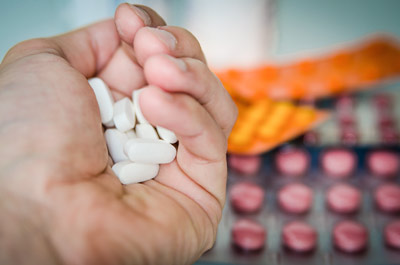 At the Atlanta Vision Institute, we care about your eye health and eyesight and are dedicated to helping you in any way we can. One way we do this is to stay on top of an eye- and vision-related news stories in the media, so we can pass this information on to you. What follows are three important eye health issues you should be aware of:
At the Atlanta Vision Institute, we care about your eye health and eyesight and are dedicated to helping you in any way we can. One way we do this is to stay on top of an eye- and vision-related news stories in the media, so we can pass this information on to you. What follows are three important eye health issues you should be aware of:
“Poppers” May Affect Your Eyesight
“Poppers” are recreational drugs and aphrodisiacs that are inhaled for a “head rush” or to enhance the sexual experience. The liquid drug is sold in small vials, often under the guise of “nail polish remover” or “video head cleaner.” At room temperature, the liquid drug becomes a gas, and when opened, it produces a vapor which is inhaled for a “rush” of euphoria.
Poppers have been popular since the 1970s disco scene, but in recent years, they have spread to the gay community and are now increasingly being used by the mainstream party crowd. Early users of the drug coined the name “poppers” because the bottle cap needed to be “popped off” before the contents could be inhaled.
No serious side effects were reported with the drug until the last decade when there were a number of cases of sudden vision loss among people who had inhaled poppers. This condition became known as “poppers maculopathy.” Studies were conducted to assess these cases, which included an examination of the brand of poppers each person had used. Researchers determined that what caused the vision problems was a change in the main chemical ingredient used in the production of the poppers.
Up until a decade ago, isobutyl nitrate was the primary chemical ingredient. In 2006, isobutyl nitrite was “reclassified as a cancer-causing agent,” and from that point on, it was no longer used to make poppers. Instead, isopropyl nitrite became the main ingredient. It’s this switch that researchers believe is to blame for the cases of vision loss.
According to researchers, isopropyl nitrite may affect the metabolism of the retinal photoreceptors. These cells are critical to the functioning of the retina, and any damage to these cells may lead to permanent blindness. At the very least, it can lead to blurriness and blind spots and can occur within hours after inhaling just one dose of poppers. Fortunately, though, in most cases, vision does recover to normal levels after the drugs are stopped.
“It’s still a very serious concern,” Dr. Ashraf says. “People need to realize that poppers can potentially be very damaging, that there is no cure for poppers maculopathy, and that prevention—the avoidance of poppers—is the key to protecting yourself. When it comes to your vision, it’s always best to not take any chances.”
Acne Medication can Increase Your Risk of Eye Infections
In a recent study, researchers in Israel found that patients who took the drug isotretinoin (known by such brand names as Roaccutane, Claravis, and Amnesteem) for the treatment of acne doubled their risks of developing eye infections (usually “pink eye” or “conjunctivitis”).
Researchers at Tel Aviv University reviewed records of nearly 15,000 Israeli adolescents and young adults and divided them into three groups: acne free, acne with no meds, and acne treated with isotretinoin. They found that the group taking isotretinoin had the highest risk of developing an eye infection. Other eye problems such as sties, blepharitis, dry eyes or eye pain, were also more prevalent.
Within a year of starting the medication, nearly 14 percent of those in the isotretinoin group developed eye problems, compared with almost 10 percent in the group that had acne but did not take isotretinoin, and about 7 percent in the group that had no acne. In contrast with the acne-free group, those taking isotretinoin were at 70 percent increased risk of an eye infection over the course of a year. In his report, Dr. Gabriel Chodick, one of the study authors, noted that acne itself causes inflammation and irritation and can also increase the risk of ocular diseases.
Based on the results of this study, Dr. Ashraf was asked if he had any of his own conclusions. “Certainly isotretinoin can be an effective drug in the treatment of acne,” he says. “However, the possible side effects that were noted by the researchers is something to take very seriously. When the eye’s mucous membranes become dried out, this can lead to infection, and that is always a concern.” For patients who are taking this acne medication, he recommends they do not to wear contact lenses during the treatment period or undergo LASIK surgery.
“If you or your children are considering taking isotretinoin, you should see your ophthalmologist before you start it, and every several months after you go on it,’ advises Dr. Ashraf. “That way we can catch any problems early before any serious side effects start to develop.”
Generic Prescription Drugs – Not Always Your Best Option!
Very often, patients choose to buy generic drugs, rather than the more expensive innovator or name-brand medications. The reason is obvious: generics cost a lot less money and are often 50 to 70 percent cheaper than brand-name versions. Furthermore, insurance companies and pharmacies may occasionally dictate the use of generics without informing the patient. In terms of pharmaceutical benefits, this isn’t always a problem.
Generics are copies of branded drugs, with the same active ingredients, dosage strengths, use, indications and minimum quality requirements as their branded counterparts (although they might have a different color, size or shape), and are used to treat the identical health condition. Normally generics are sold under their chemical names (e.g. ibuprofen, aspirin, etc.), as pharmaceutical companies rarely advertise their generic products.
Still, generics are not always the best choice. For instance, in 1999, diclofenac eye drops, a generic version of Voltaren (used for treating eye swelling after cataract surgery), caused corneal melts in some patients, resulting in permanent damage to their eyes. Subsequently, generic diclofenac was withdrawn from the market.
How do generic drugs become approved for use? It starts with the formulation of the innovator or brand name drug. Pharmaceutical developers must prove the safety and efficacy of their drugs through time-consuming research and clinical studies. These companies spend extraordinary amounts of money on the formulation of both the active and inactive ingredients, packaging, and delivery mechanisms of the drugs to ensure safety and efficacy. Once approved, any new drug approved by the FDA enjoys patent protection for a number of years before competitive generic versions are allowed to enter the market.
When a manufacturer wants a generic drug to enter the market, the research data for the innovator drug can be used, resulting in a much less expensive development process. During the testing period, the FDA requires generic drug manufacturers to still demonstrate equivalence, which means their products must contain the same concentration of active ingredient as the formulation that earned FDA approval. They are not, however, required to prove therapeutic equivalence. This is why generic drugs may or may not be just as effective as brand-name versions.
What’s the bottom-line? Dr. Ashraf advises patients to keep their physicians informed about all the medications they are taking. “It’s a good idea to bring all of your medications with you when you come in for an examination and show them to your doctor or all the info from EMR Systems,” he says. “Talk to your doctor about whether a generic alternative might be right for you. There may be a few generics that may be as efficacious as the branded version for certain patients….but that’s not always the case.”

Please Take Our LASIK or Cataract Surgery Quiz
Take our vision quiz to find out if you qualify for LASIK or cataract surgery!


